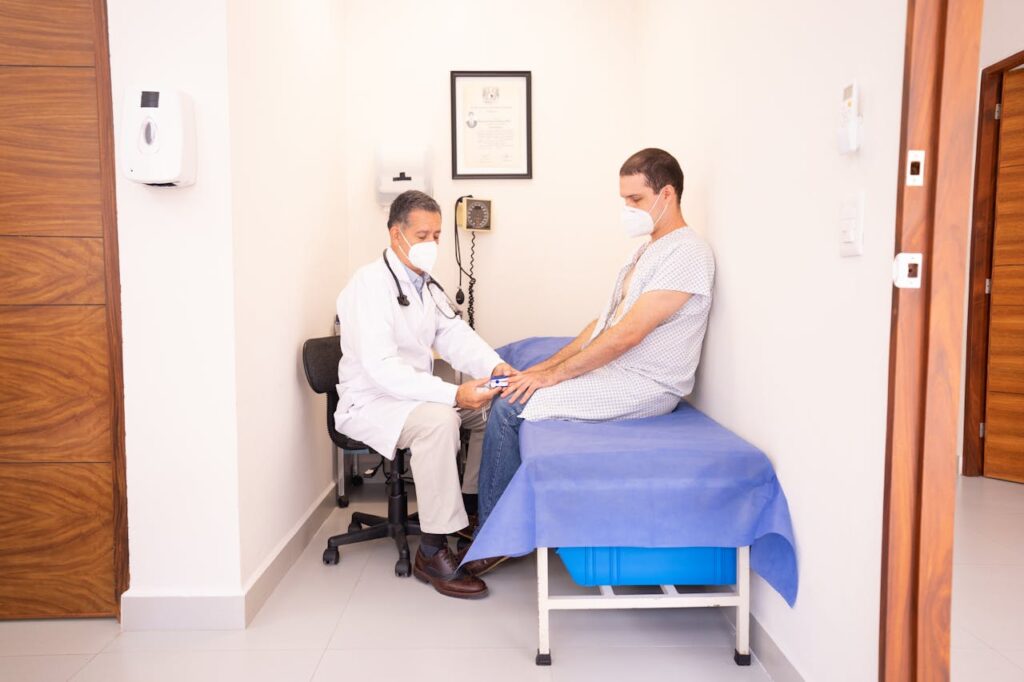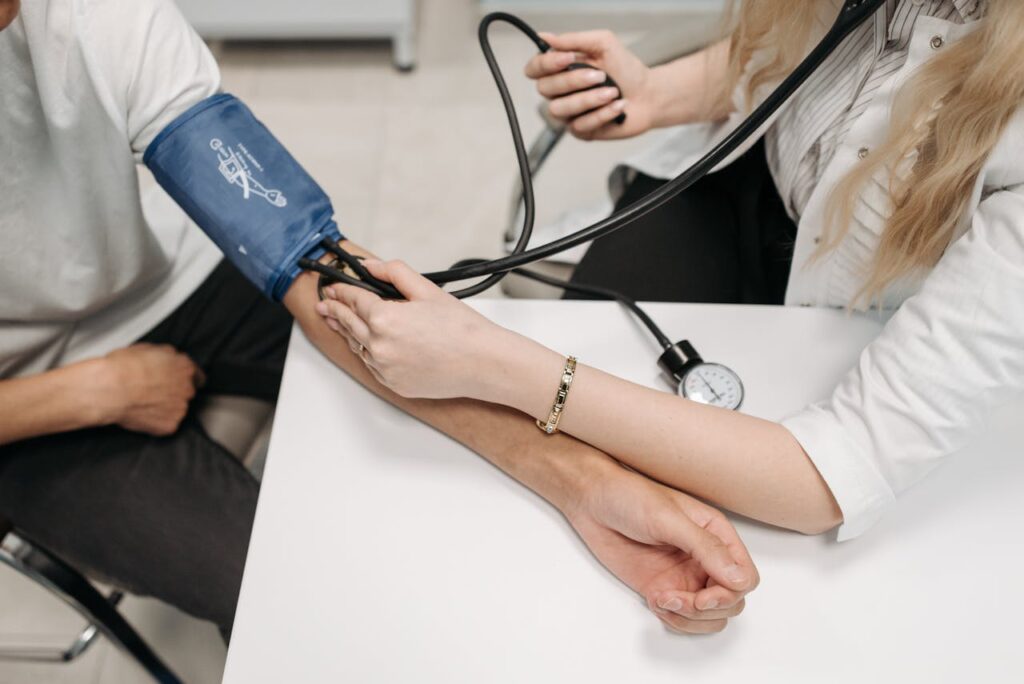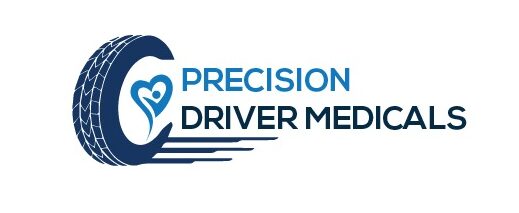Learn everything HGV drivers need to know about the DVLA HGV blood pressure limit. Understand how it affects your driver’s medicals, pass requirements, and tips to manage your blood pressure before your exam.
Overview
If you’re an HGV driver in the UK, you already know how important it is to stay compliant with DVLA medical requirements. One of the key factors that can impact your ability to drive legally is your blood pressure. In this article, we’ll break down the DVLA HGV blood pressure limit, why it matters, and what to expect during your driver’s medicals.
As a provider of professional driver medicals across the UK, we at Precision Driver Medicals understand that many drivers have concerns about meeting the required standards. Let’s help you understand and prepare.
Why Is Blood Pressure Important for HGV Drivers?
High blood pressure, also known as hypertension, can increase the risk of heart attacks, strokes, and other severe health conditions. When you’re responsible for driving large vehicles on the road, that risk is not just to you—but to everyone else around you.
DVLA’s Main Concern: Safety
The DVLA sets medical standards to ensure that HGV drivers are fit to drive. Blood pressure is one of the main areas assessed during driver medicals. If your blood pressure is too high, you may be refused a driving license until it’s under control.

What Is the DVLA HGV Blood Pressure Limit?
According to the DVLA Group 2 medical guidelines, the following limits apply:
- Maximum permitted blood pressure: 179/99 mmHg
- Anything above this: The DVLA may refuse or revoke your licence.
- Preferred target range: Below 140/90 mmHg, especially for long-term licensing.
If your reading is above 180 systolic or 100 diastolic, you will not pass your medical on the day. However, this doesn’t necessarily mean a permanent ban—you may be able to re-test once your blood pressure is controlled.
How Blood Pressure Is Measured During Driver Medicals
When you attend your driver’s medical, the examining doctor will take your blood pressure using a digital or manual blood pressure monitor. Here’s what to expect:
Steps during your driver medical exam:
- You’ll sit comfortably and rest for a few minutes before the test.
- The doctor places a cuff around your upper arm.
- The reading will show two numbers:
If the reading is borderline or high, the doctor may retest you after a few minutes.
What Happens If Your Blood Pressure Is Too High?
If your blood pressure is over 179/99, you won’t pass your HGV medical on that day. But don’t panic—it’s not the end of the road.
Next steps may include:
- Being advised to see your GP for further investigation.
- Starting or adjusting blood pressure medication.
- Returning for a follow-up driver medical once blood pressure is under control.
We often recommend that drivers check their blood pressure in advance, especially if they have a history of high blood pressure. Some drivers use home blood pressure monitors to track their blood pressure trends.
Tips to Lower Your Blood Pressure Before a Driver Medical
If you’re worried about passing the DVLA HGV blood pressure limit, here are proven ways to bring it down:
Lifestyle Adjustments:
- Avoid caffeine and smoking 2–3 hours before your test
- Reduce salt intake in your diet
- Exercise regularly; even brisk walking can help
- Lose excess weight
- Limit alcohol consumption
- Practice stress-reducing techniques like deep breathing or meditation
It’s best to implement these habits weeks in advance rather than just the day before.

Common Questions About Driver Medicals and Blood Pressure
1. Can I take medication for high blood pressure and still drive an HGV?
Yes. If your blood pressure is well controlled with medication and below the DVLA limit, you can continue to drive and renew your licence.
2. What if I fail the medical due to blood pressure?
You can rebook once you’ve worked with your GP or healthcare provider to bring your readings back to a safe level.
3. How often are HGV drivers required to take driver medicals?
- First time: When applying for an HGV licence
- Every 5 years: From age 45–65
- Annually: After age 65
Suppose you have a medical condition, such as high blood pressure. In that case, you may be required to undergo driver medicals more frequently.
Why Choose Us for Your Driver Medicals?
At Precision Driver Medicals, we understand the pressure—literally and figuratively. We’re here to make the process of getting your driver medical as easy and stress-free as possible.
What we offer:
- GMC-registered doctors
- DVLA-compliant medical assessments
- Convenient clinic locations across the UK
- Same-day, evening, and weekend appointments
- Affordable pricing
Our team is experienced with HGV blood pressure requirements. It can provide guidance and support if you’re worried about passing your medical.
Related Keywords to Know
To help you understand the broader topic of driver medicals, here are some important related terms:
- HGV medical examination
- DVLA Group 2 medical
- Taxi driver medical
- Driver health check
- Medical standards for professional drivers
- Blood pressure for DVLA licence
- PCV driver medical
- Fit to drive medical certificate
All these services and more are part of our offering at Precision Driver Medicals.
Final Thoughts: Stay Informed, Stay Road-Ready
Knowing your DVLA HGV blood pressure limit and staying on top of your health is crucial not only for your job but for everyone’s safety on the road. Whether you’re due for your first driver medical or a routine renewal, preparation is key.
At Precision Driver Medicals, we’re here to support you every step of the way. Book your appointment today and drive with confidence, knowing your health is in check.


